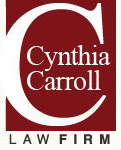Divorce is the ending of a marriage; the ending of a union that is physical, emotional and financial. While most people think about the emotional and physical separation involved in divorce, there is also the financial separation. This raises the question: When is Bankruptcy a part of the Divorce?
Pursuant to 13 Delaware C. §1513, marital property is any property acquired during the marriage by either party regardless of how it’s titled. This means that under Delaware law, both the assets and debts of the marriage are marital property and are subject to be equitably divided by the court. Equitable division is determined by the court based on the circumstances of the case. Generally, 50/50 is the starting point. However, equitable division of marital property can be 60/40 or even 70/30. It is important to take note that the marital property is divided regardless how it’s titled. In practice, the debts titled in the name of one spouse can be divided in such a way that the other spouse is responsible for all or a portion of the debt.
When evaluating a case, it is important to consider both the assets and debts of the parties. If the debts exceed the assets then bankruptcy may be the answer. It has been my experience in recent cases, where the debts exceed the assets; the real property is worth less than is owed on the mortgage and/or neither party can retain the property, the Court has suggested that the parties investigate whether bankruptcy is an option.
By the time the Court is making this suggestion, it is often just before the hearing on the ancillary matters. This is too late to file bankruptcy jointly. It is more economical for the parties to file bankruptcy jointly before the divorce decree is entered because the parties will file as a couple instead of separately. The joint bankruptcy petition will permit the parties to resolve all of the joint debt, surrender joint property that no one wants or can afford to retain and at the same time identifying the remaining issues in dispute.
Therefore, when considering divorce, include the financial separation, not just alimony or property division, but also the division of debt. If the debts exceed the assets, then a consultation with a bankruptcy attorney is a must. Don’t divide marital debt to your financial detriment that may be discharged in bankruptcy.
———————————————————————————————————–
The author of this guest blog post is Gretchen Gilchrist, Esquire
Ms. Gilchrist is licensed to practice law in both Delaware and Pennsylvania. Her practice areas include Family Law, Divorce Law, and Wills, Healthcare Directives and Powers of Attorney. Her website: http://www.thegilchristfirm.com/
